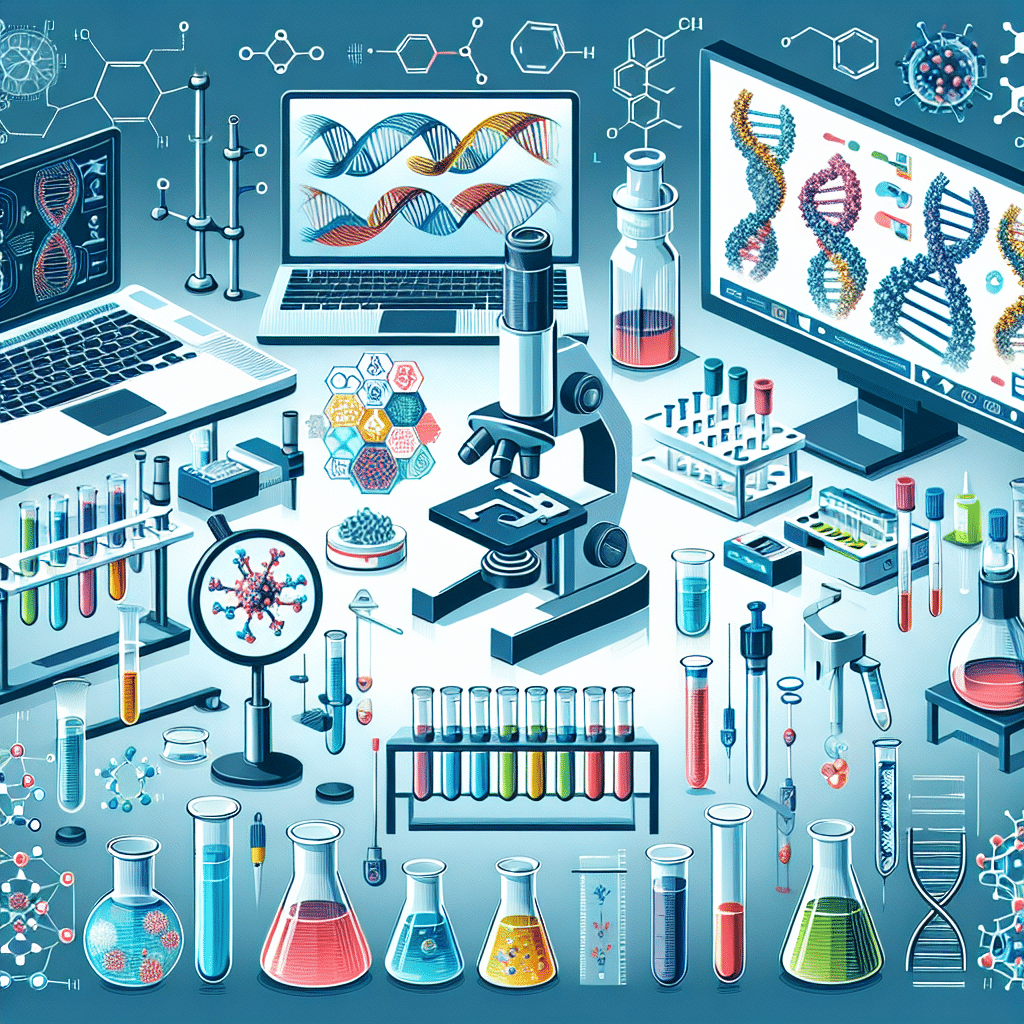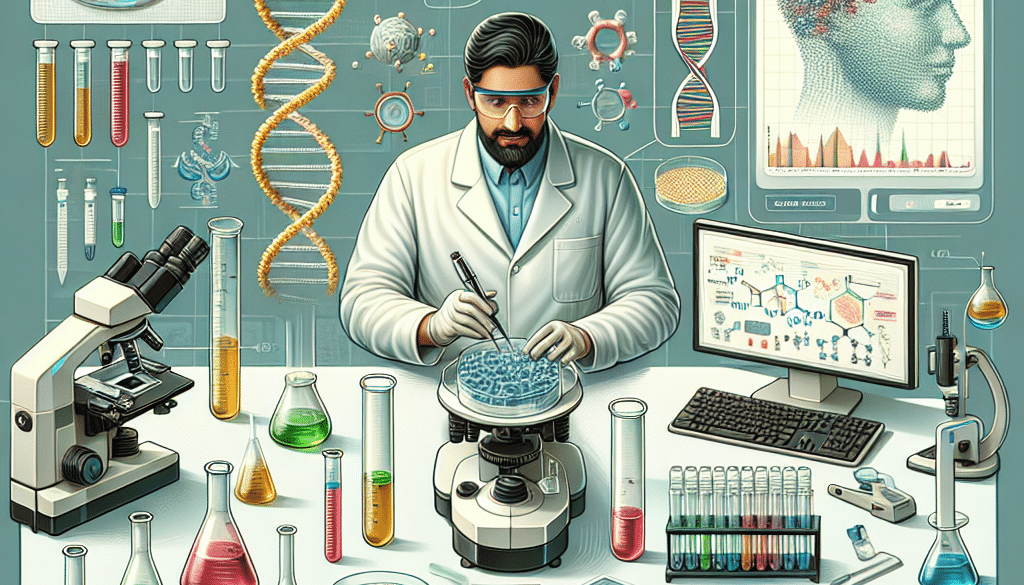Immunoassays and Protein Detection: Tools for Discovery
-
Table of Contents
- Immunoassays and Protein Detection: Pioneering Tools for Scientific Discovery
- Understanding Immunoassays: The Basics
- Applications of Immunoassays in Research and Medicine
- Advancements in Protein Detection Technologies
- Case Studies: Immunoassays in Action
- Challenges and Future Directions
- Conclusion: The Impact of Immunoassays on Science and Healthcare
- Discover Quality Protein Products with ETprotein
Immunoassays and Protein Detection: Pioneering Tools for Scientific Discovery

Immunoassays and protein detection methodologies are at the forefront of biomedical research and diagnostic testing. These powerful tools have revolutionized the way scientists and clinicians understand diseases, develop treatments, and monitor patient health. This article delves into the world of immunoassays, exploring their principles, applications, and the latest advancements in protein detection technologies.
Understanding Immunoassays: The Basics
Immunoassays are biochemical tests that rely on the specificity of antibodies to detect and quantify antigens, which are typically proteins or small molecules associated with pathogens, disease states, or biological processes. The strength of immunoassays lies in their high sensitivity and specificity, making them invaluable in a wide range of fields, from clinical diagnostics to environmental monitoring.
- Enzyme-Linked Immunosorbent Assay (ELISA)
- Radioimmunoassay (RIA)
- Western Blotting
- Immunohistochemistry (IHC)
- Flow Cytometry
Applications of Immunoassays in Research and Medicine
Immunoassays have diverse applications, each harnessing the power of antigen-antibody interactions to uncover crucial information about biological systems and disease mechanisms.
- Disease Diagnosis: Immunoassays are used to diagnose infectious diseases, autoimmune disorders, and cancers by detecting specific biomarkers.
- Vaccine Development: They play a critical role in evaluating the efficacy of vaccines by measuring immune responses.
- Drug Testing: Immunoassays are employed in pharmacokinetics and drug abuse testing.
- Food Safety: These assays can detect allergens and contaminants in food products.
Advancements in Protein Detection Technologies
Technological innovations continue to enhance the capabilities of immunoassays, making them more sensitive, faster, and more user-friendly.
- High-Throughput Screening: Automation and miniaturization allow for simultaneous testing of thousands of samples.
- Point-of-Care Testing: Portable immunoassay devices enable rapid diagnostics outside traditional laboratory settings.
- Biosensors: These devices integrate biological components with electronic systems to provide real-time monitoring of biological events.
Case Studies: Immunoassays in Action
Real-world examples illustrate the impact of immunoassays in advancing scientific knowledge and improving patient outcomes.
- HIV Testing: ELISA and Western blot tests have been crucial in the early detection and management of HIV/AIDS.
- Cancer Biomarkers: The detection of prostate-specific antigen (PSA) has transformed prostate cancer screening.
- Pandemic Response: During the COVID-19 pandemic, immunoassays were rapidly developed to detect SARS-CoV-2 antibodies, aiding in the understanding of immune responses and vaccine effectiveness.
Challenges and Future Directions
Despite their widespread use, immunoassays face challenges such as cross-reactivity and the need for standardization. Future research is focused on overcoming these limitations and expanding the utility of immunoassays through novel biomarker discovery and the integration of artificial intelligence for data analysis.
Conclusion: The Impact of Immunoassays on Science and Healthcare
Immunoassays and protein detection technologies are indispensable tools that have shaped modern science and medicine. Their ability to provide precise and reliable measurements of proteins and other biomolecules has led to groundbreaking discoveries and improved patient care. As these technologies continue to evolve, they promise to unlock even more secrets of the biological world and pave the way for new diagnostic and therapeutic strategies.
Discover Quality Protein Products with ETprotein
For researchers and industry professionals seeking high-quality protein products, ETprotein offers a comprehensive range of solutions. Their expertise in manufacturing and supplying organic bulk vegan protein and plant proteins ensures that you have access to the best resources for your immunoassay and protein detection needs.
About ETprotein:
ETprotein, a reputable protein Chinese factory manufacturer and supplier, is renowned for producing, stocking, exporting, and delivering the highest quality organic bulk vegan protein and plant proteins. They include Organic rice protein, clear rice protein, pea protein, clear pea protein, pumpkin seed protein, sunflower seed protein, mung bean protein, peanut protein etc. Their offerings, characterized by a neutral taste, non-GMO, allergen-free attributes, cater to a diverse range of industries. They serve nutraceutical, pharmaceutical, cosmeceutical, veterinary, as well as food and beverage finished product distributors, traders, and manufacturers across Europe, USA, Canada, Australia, Thailand, Japan, Korea, Brazil, and Chile, among others.
ETprotein specialization includes exporting and delivering tailor-made protein powder and finished nutritional supplements. Their extensive product range covers sectors like Food and Beverage, Sports Nutrition, Weight Management, Dietary Supplements, Health and Wellness Products, and Infant Formula, ensuring comprehensive solutions to meet all your protein needs.
As a trusted company by leading global food and beverage brands and Fortune 500 companies, ETprotein reinforces China’s reputation in the global arena. For more information or to sample their products, please contact them and email sales(at)ETprotein.com today.














